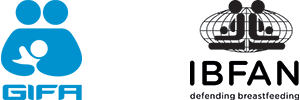
15/12/2025
Dads do not breastfeed, yet their presence is very important from the beginning of the child’s life. Their role is different from the mother’s, it is complementary. The involvement and support of the father in the decision to breastfeed is crucial. Studies confirm this.
- GIFA Après-midi allaitement Webinar – Dad and Breastfeeding
- Leaflets by Breastfeeding Promotion Switzerland
- The role of Fathers
- Dads – a complementary mission
- Fathers influence decision to breastfeed
- Masculinity and Care
- Fathers’ own stories
- Birth of the father
- Poster 2017 – importance of the father
- Resources
- Scientific References
GIFA Après-midi allaitement Webinar – Dad and Breastfeeding
9th Decembre 2025, see information here
Leaflets by Breastfeeding Promotion Switzerland
See the leaflets and other documents on the page for fathers on the website of Breastfeeding Promotion Switzerland.
The role of Fathers
Gebremariam et al. 2024, Breastfeeding – a survey of fathers’ support needs and preferred sources of information. Conclusion Breastfeeding information to enhance fathers’ knowledge and awareness of common breastfeeding challenges, and fathers’ role in supporting their breastfeeding partner, appear to be (most) important for fathers. Mobile app appears to be among the most preferred non-health professional ways to provide breastfeeding information to fathers. https://internationalbreastfeedingjournal.biomedcentral.com/articles/10.1186/s13006-024-00654-9
DeMontigny et al. 2018, The role of fathers during breastfeeding Key findings: participating fathers perceived their role as much more complex than the limited role of breastfeeding facilitator that is usually attributed to them. Fathers saw themselves as stakeholders in decision-making relating to how their child was fed and they reacted to the imbalance created by breastfeeding. Their involvement occurred at several levels: that of their child, their spouse, and their family. https://pubmed.ncbi.nlm.nih.gov/29272696/
Dads – a complementary mission
An article in French by Ingrid Bayot, midwife, D.U. lactation, perinatal trainer, author and speaker.
Fathers influence decision to breastfeed
A number of studies have shown that fathers influence mothers’ decisions to initiate and/or maintain breastfeeding (for a review, see Scott et al, 2001). In dissecting this research, support from the child’s father through active participation in the decision to breastfeed, as well as a positive attitude on his part and knowledge of the benefits of breastfeeding, has been found to have a strong influence on breastfeeding initiation and duration (Swanson & Power, 2005; Arora et al, 2000; Bromberg & Darby, 1997). Low-income women, in particular, suggest that male support is crucial to their decision to breastfeed (Schmidt & Sigman-Grant, 2000).
It should be noted that mothers’ perceptions of their partners’ attitudes toward breastfeeding – on which researchers often rely – may not be accurate: when men are directly interviewed, their attitudes may be more positive than those expected and reported by their partners (Freed et al, 1993). Fathers’ actual beliefs about breastfeeding and their level of knowledge and understanding are important factors.
Source: Fatherhood Institute Research Summary: Fathers and Breastfeeding http://www.fatherhoodinstitute.org/2007/fatherhood-institute-research-summary-fathers-and-breastfeeding/
Masculinity and Care
A father who is involved in breastfeeding doubles the likelihood of exclusive breastfeeding at 6 months (Mahesh et al. 2018). However, many fathers perceive breastfeeding as an obstacle to their involvement as fathers. The fact that the mother feeds the baby with her own body can make the father feel left out. He may have ambivalent feelings towards the baby, who monopolises the mother’s attention. He may have concerns about intimacy within the couple and feel uncomfortable when the mother breastfeeds in public.
A father’s involvement in childcare is linked to his ability to shift his focus away from his masculine socialisation and the unconsciously received messages from his childhood. Physiologically, during the perinatal period, several hormonal changes (prolactin, oxytocin, etc.) influence the behaviour of the man who is becoming a father. These changes are similar but more subtle than in the mother and encourage ‘caregiving’.
A ‘good enough’ father will find his place in caring for and relating to the child. Through a positive attitude, he supports the mother emotionally. He can also get involved on a practical level (meals, housework, caring for older children) and position himself as the protector of his family in relation to those around him and caregivers. https://www.allaiter.ch/logicio/pmws/stillen__father__de.html?hl=Father
It is important that he takes care of himself, allows himself to express his emotions and seeks support when he feels it is necessary.
‘A society in which men participate in caregiving contributes decisively to gender equality and the achievement of social justice.’ https://www.maenner.ch/fr/
Fathers’ own stories
WBTi France made an appeal on Facebook in 2018 to solicit testimonials from fathers about breastfeeding. It collected and compiled many very inspiring texts (in French).
Birth of the father
Itis not always easy to become a father. The man also passes by a phase of gestation and birth to become a father! He must learn to identify his feelings, talk about his doubts and express his expectations.
Under the aegis of the Haute Ecole de Santé Vaud (HESAV) in collaboration with männer.ch, the project consists of the creation of 5 video films on the theme of the place and role of future fathers at the time of the arrival of a child in the couple. What are the experiences of a man who becomes a father? The ordeal of childbirth, his participation from the point of view of health care professionals, breastfeeding and parenthood are all themes that are addressed. Testimonials of future fathers are enriched by comments from professionals in the field of perinatal care and complemented by scientific contributions.
- Fathers involved – families strengthened https://www.maenner.ch/fr/la-naissance-dun-pere/
- MenCare and HESAV project: Becoming a father – 5 videos of 18 minutes https://www.youtube.com/watch?v=eW5cX_hvtE4
Poster 2017 – importance of the father

Resources
- Fondation Promotion Allaitement Suisse For Fathers
- La Leche League GB, Parenting when your partner breastfeeds
- Ingrid Bayot http://www.ingridbayot.com/
- Atelier du futur Papa https://www.atelierdufuturpapa.com/
- Fathers involved – families strengthened https://www.maenner.ch/fr/la-naissance-dun-pere/
- MenCare and HESAV project: Becoming a father – 5 videos of 18 minutes https://www.youtube.com/watch?v=eW5cX_hvtE4
Scientific References
- Gebremariam et al. (2024) Breastfeeding – a survey of fathers’ support needs and preferred sources of information. https://internationalbreastfeedingjournal.biomedcentral.com/articles/10.1186/s13006-024-00654-9
- Agrawal J et al. (2022) The Role of Fathers in Promoting Exclusive Breastfeeding https://www.ncbi.nlm.nih.gov/pmc/articles/PMC9665906/
- Sihota H et al. (2019) Fathers’ Experiences and Perspectives of Breastfeeding: A Scoping Review. https://www.ncbi.nlm.nih.gov/pmc/articles/PMC6537273/
- DeMontigny et al. (2018) Le rôle du père durant l’allaitement. https://pubmed.ncbi.nlm.nih.gov/29272696/
- Swanson V. & Power K.G. (2005). Initiation and continuation of breastfeeding: theory of planned behaviour. Journal of Advanced Nursing, 50(3), 272-282. https://pubmed.ncbi.nlm.nih.gov/15811106/
- Scott JA et al. (2001). Factors associated with the initiation and duration of breastfeeding amongst two populations of Australian women. Journal of Paediatrics & Child Health, 37, 254-261. https://pubmed.ncbi.nlm.nih.gov/11468040/
- Arora S., McJunkin C., Wehrer J., Kuhn P. (2000). Major factors influencing breastfeeding rates: mother’s perception of father’s attitude and milk supply. Pediatrics, 106(5). https://pubmed.ncbi.nlm.nih.gov/11061804/
- Schmidt MM & Sigman-Grant M. (2000). Perspectives of low-income fathers’ support of breastfeeding: an exploratory study. Journal of Nutrition Education, 32(1), 31-37. https://www.sciencedirect.com/science/article/abs/pii/S0022318200705073
- Bar-Yam NB. & Darby L. (1997). Fathers and breastfeeding: a review of the literature. Journal of Human Lactation, (13), 45–50. https://pubmed.ncbi.nlm.nih.gov/9233185/
- Freed GL et al. (1993). Accuracy of expectant mothers’ predictions of fathers’ attitudes regarding breast-feeding. Journal of Family Practice, 37(2), 148-152. https://pubmed.ncbi.nlm.nih.gov/8336095/
